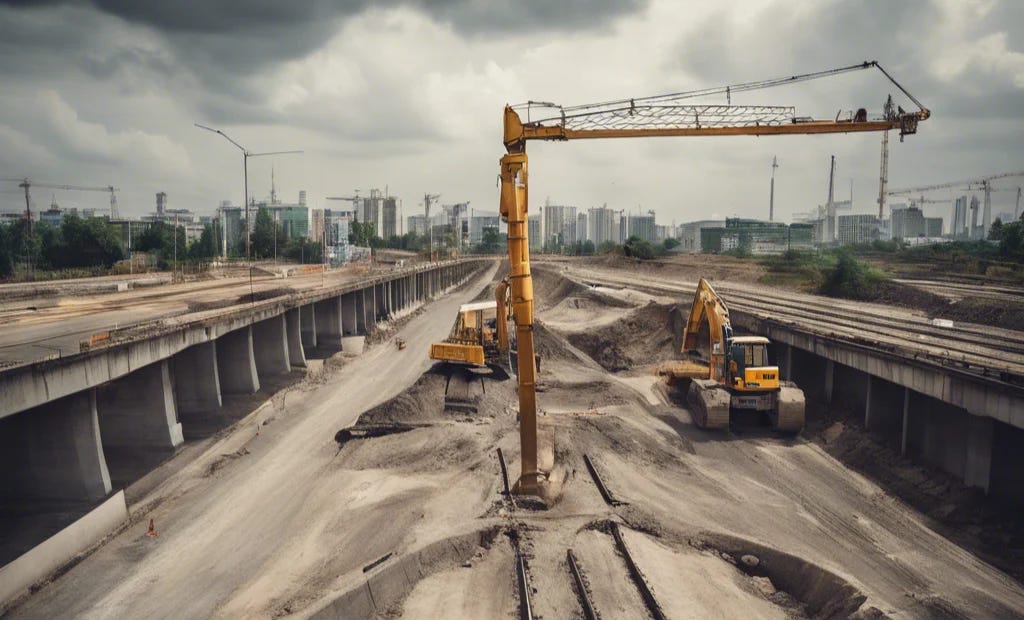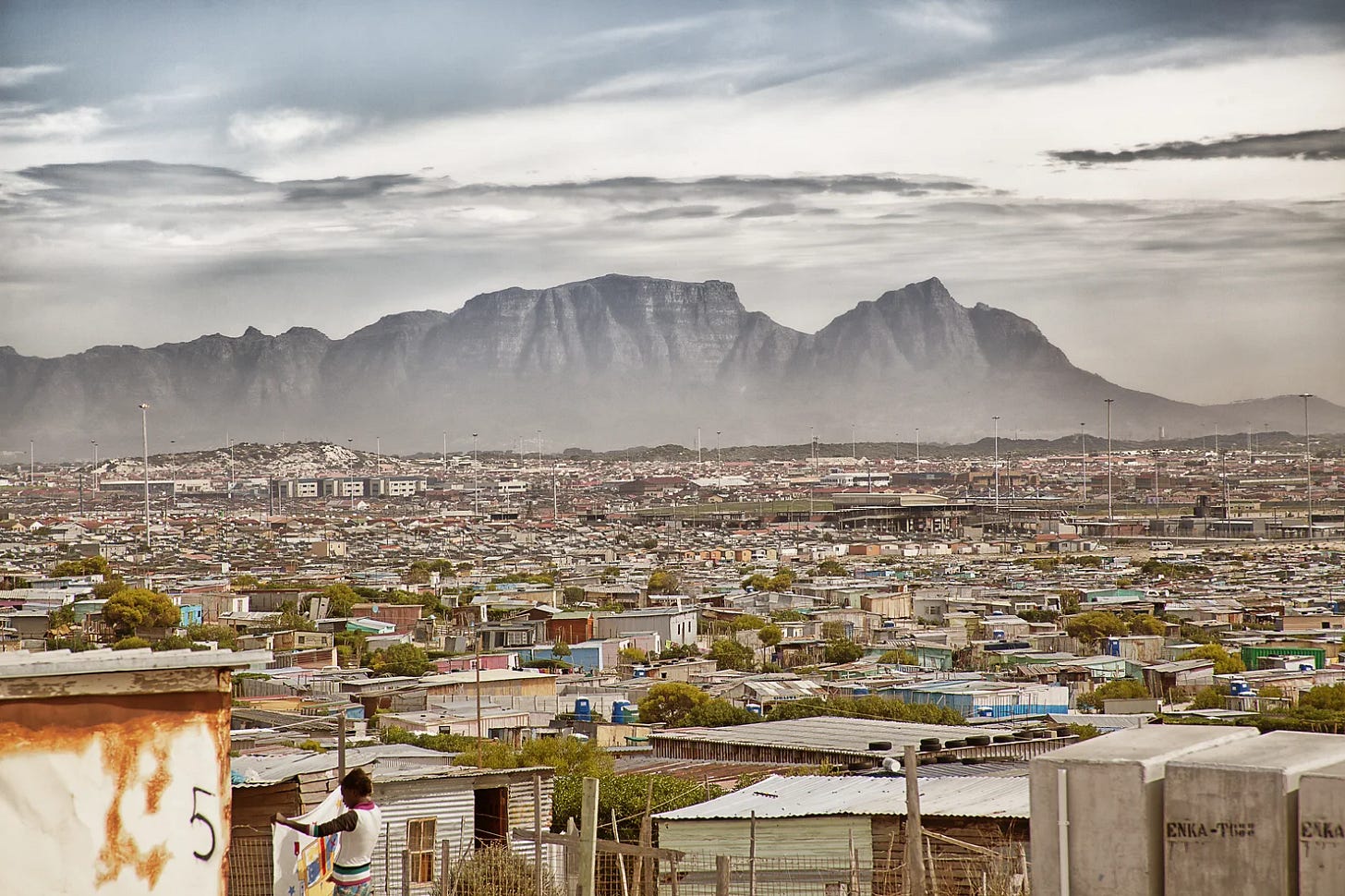The Creaking City: South Africa's Urban Infrastructure Challenges
South Africa's cities are the engines of its economy, hubs of innovation, and home to a growing urban population. South Africa stands at a critical juncture in its urban development trajectory. With rapid urbanisation and population growth, the country's cities face significant infrastructure challenges. Despite progress in infrastructure development over the years, many urban areas grapple with issues ranging from inadequate transportation systems to water and sanitation deficiencies. This post delves into the multifaceted challenges confronting South Africa's urban infrastructure and explores potential avenues for addressing them.
A Legacy of Apartheid and Rapid Urbanisation
The roots of South Africa's urban infrastructure woes lie in the policies of the past. Apartheid led to racially segregated cities with unequal access to basic services. Townships, predominantly Black areas, were neglected, resulting in a backlog in infrastructure development.
Following the end of Apartheid, South Africa has witnessed rapid urbanisation. According to the World Bank the urban population is projected to reach 77% by 2050. This rapid growth has placed immense strain on existing infrastructure, exceeding its capacity.
The Backlog and Deterioration of Existing Infrastructure
South Africa faces a significant backlog in basic infrastructure provision. A 2016 report by the Department of Cooperative Governance and Traditional Affairs (COGTA) ["South Africa's Urban Infrastructure Challenge"] highlights the need for investment in water, sanitation, electricity, and waste management. While access to basic services has improved since 2001, the quality and reliability of these services remain a concern.
Furthermore, much of the existing infrastructure is aging and deteriorating. The national power utility, Eskom, grapples with an aging grid and insufficient generation capacity, resulting in frequent power cuts ("load shedding") that cripple businesses and disrupt daily life. It may be worth noting that we’ve had a suspicious amount of electricity going around lately. A 2021 article in SciELO SA [The right to functioning urban infrastructure - A review] emphasises the high cost of under-maintaining infrastructure, impacting the economy and quality of life.
South Africa faces a substantial housing backlog, with millions of households lacking access to formal housing. High construction costs, regulatory barriers, and inadequate land availability impede efforts to address the housing deficit, perpetuating housing insecurity and informal settlement expansion.
Spatial Inequality and the Challenge of Informal Settlements
The spatial layout of South African cities exacerbates infrastructure challenges. Apartheid's legacy continues in the form of fragmented urban development, with wealthy areas having better infrastructure compared to informal settlements. These settlements, often located on marginal land, lack basic services and are vulnerable to environmental hazards.
The growth of informal settlements further strains infrastructure capacity. Municipalities struggle to keep pace with the demand for services in these areas, creating a vicious cycle of poverty and underdevelopment.
The Ripple Effects: Impacts on Economy and Quality of Life
The consequences of these challenges are far-reaching. Businesses face disruptions due to power cuts and unreliable water supply. Unequal access to basic services like sanitation disproportionately impacts poorer communities. Traffic congestion stifles economic activity and reduces productivity. Furthermore, crumbling infrastructure discourages investment and job creation.
Financing the Infrastructure Gap
Addressing the infrastructure deficit requires substantial financial resources. Local municipalities often lack the capacity to raise sufficient funds. The 2016 COGTA report emphasises the need for innovative financing mechanisms, including public-private partnerships (PPPs). Significant investment is needed in both new infrastructure and the maintenance of existing systems.
However, PPPs are not without their challenges. Concerns exist regarding affordability and potential for corruption. Striking the right balance between attracting private investment and ensuring equitable access to services is crucial.
Addressing these challenges is a complex undertaking. Municipal governments, often burdened with limited capacity and financial resources, struggle to maintain existing infrastructure, let alone invest in new developments. The need for "policy agility" and a more robust institutional framework to manage infrastructure effectively can not be emphasised enough.
The Looming Threat of Climate Change
Climate change adds another layer of complexity to South Africa's infrastructure woes. Increased droughts and water scarcity threaten water security. Extreme weather events like floods can damage infrastructure and disrupt service delivery.
Cities need to invest in climate-resilient infrastructure that can withstand future environmental challenges. This includes green infrastructure solutions that can help manage water resources and mitigate the effects of urban heat islands.
Towards Sustainable and Inclusive Cities
Overcoming South Africa's urban infrastructure challenges requires a multi-pronged approach. Here are some potential solutions based on available research:
Increased investment: The government needs to prioritise infrastructure spending and explore innovative financing mechanisms. Public-private partnerships can play a role, but with careful consideration of affordability and transparency. A revised framework may be needed sooner rather than later considering the proposed amendments to Regulation 16 of the PFMA published by National Treasury on the 19th of February 2024.
Spatial integration: Breaking down spatial inequalities and promoting integrated urban development is essential. This involves providing basic services to informal settlements and fostering inclusive spatial planning.
Building capacity: Investing in training and skills development at the local government level is crucial. Municipalities need skilled personnel to manage infrastructure projects effectively.
Promoting innovation: Embracing new technologies and innovative solutions can play a vital role in building a more resilient infrastructure system.
Conclusion
South Africa's urban infrastructure challenges are multifaceted and deeply entrenched, reflecting decades of historical legacies, rapid urbanisation, and systemic shortcomings. Addressing these challenges requires coordinated efforts from government, private sector stakeholders, and civil society to invest in resilient infrastructure, implement inclusive urban policies, and foster sustainable development. As South Africa navigates its urbanisation journey, prioritising infrastructure investments and equitable urban development is imperative to building cities that are resilient, inclusive, and sustainable.







